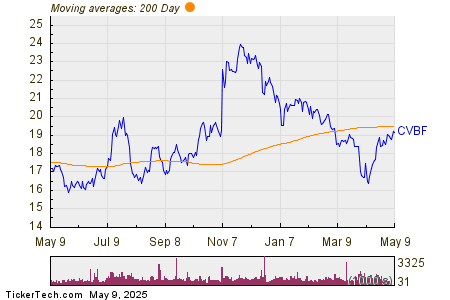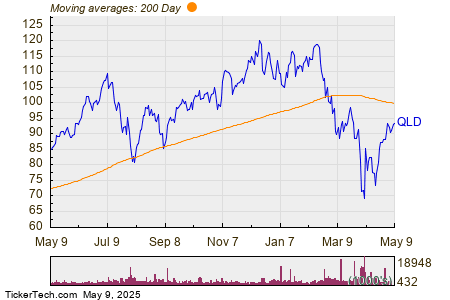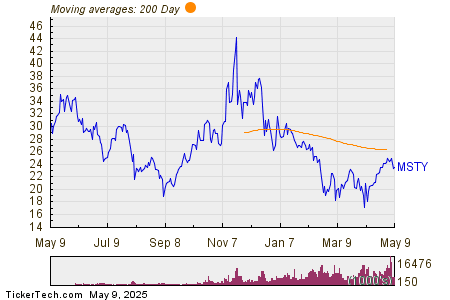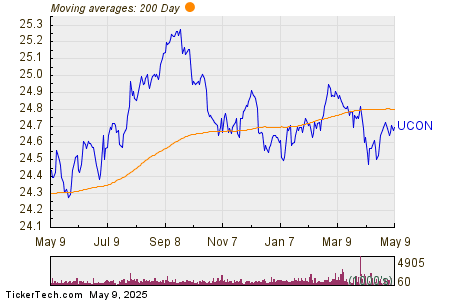The Global X MSCI Argentina ETF, a symbol of hope and surging prospects as libertarian Javier Milei seized the presidency last November, has seen a meteoric surge in value, escalating an impressive 11% and propelling the inflation-blighted nation into the spotlight of potential economic rejuvenation. The MERVAL index, in tandem, has nearly doubled, reflecting the burgeoning optimism among investors in Argentina. However, the exuberant tailwinds of change that have swept through the Argentine financial landscape have not translated into a boon for Netflix, the pioneering streaming service.
Netflix sounded the alarm about the progressive devaluation of the Argentine peso in its recent earnings report, sounding a clarion call against the sharp winds of economic adversity that threaten to curtail revenue growth by three percentage points, tethering it at 13% for the first quarter. This represents a slight improvement over the previous quarter’s 12.5%, which had suffered a one-percentage-point blow from foreign exchange. The stark reality is that the foreign exchange-neutral 16% growth was an elusive dream, evanescent as it was in the face of relentless economic tumult.
Investors, while optimistic about the passionate endeavors of Milei to curtail the ignoble practice of printing money, a practice that under the previous administration had fueled a staggering inflation rate of over 200% in 2023, are not blind to the fact that substantial transformations take time. The projected 150% inflation rate in 2024, following the devaluation of the official currency and the daunting sovereign debt of over $400B, with $110B owed to the International Monetary Fund and private eurobond holders, underscores the formidable challenges facing the nation.
What does this forebode for Netflix? The tempestuous travails of Argentina are likely to prolong the trammeling effects on Netflix’s performance in 2024. However, the dawn of 2025 could witness the fruition of Milei’s audacious maneuvers as the economic horizon promises a potential easing of inflation and resurgent demand, as anticipated by The Economist’s Intelligence Unit.
This year, Netflix initiated a hedging mechanism for foreign currency revenue, with international sales accounting for a robust 60% of annual revenue, a figure expected to ascend. “While we’ve launched a F/X risk management program with a goal of reducing near-term volatility, we aren’t fully hedged, which is why we are still guiding and managing to a F/X neutral operating margin target,” the company emphasized in a shareholder letter released in January. “Our goal is to steadily increase our operating margin each year, though the rate of margin expansion may vary year to year.”
Unraveling the Argentine Imprint as an Unyielding Challenger
Argentina serves as a pivotal market for Netflix. It boasts an estimated 5 million subscribers, positioning itself as the streaming giant’s 12th largest market, according to FlixPatrol. In juxtaposition, Brazil, with its robust GDP of nearly $2 trillion (in contrast to Argentina’s $631 billion) and a modest 4.62% inflation rate as of December, reigns as the second-largest market for the streaming behemoth, with 15.3 million subscribers.
As a proportion of their respective populations, Netflix has a penetration rate of 11% in Argentina, significantly higher than Brazil’s 7%. However, the fluctuating subscription cost in Argentina ranges from approximately $2 to $3 (predicated on the exchange rate utilized) to approximately $5 to $7 per month as of January 25, diverging substantially from the average revenue per membership of $8.60 in Latin America. The current minimum wage in Argentina fluctuates from approximately $126 to $188 per month, with the poverty level soaring to 40% in the first half of 2023, as outlined by Argentina’s government statistics agency, INDEC.
The adverse economic landscape has precipitated a substantial contraction in consumer spending across all sectors in Argentina, a trend unlikely to abate in 2024. Nevertheless, there lies the glimmer of hope that Milei’s audacious measures will yield dividends in the forthcoming year.
“We anticipate a robust economic recovery in 2025, driven in part by a more supportive business environment that will stimulate investment,” The Economist’s Intelligence Unit underscored. It is worth noting, however, that Milei’s resolute measures have stirred controversy and dissent, evident from the widespread strikes held on January 24, indicative of the social disquiet percolating through the societal fabric.





